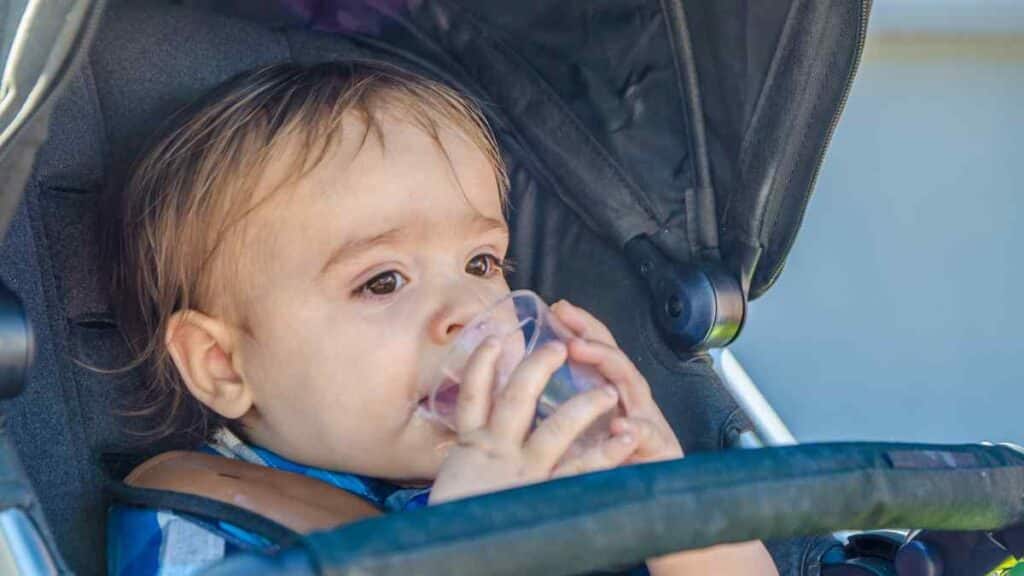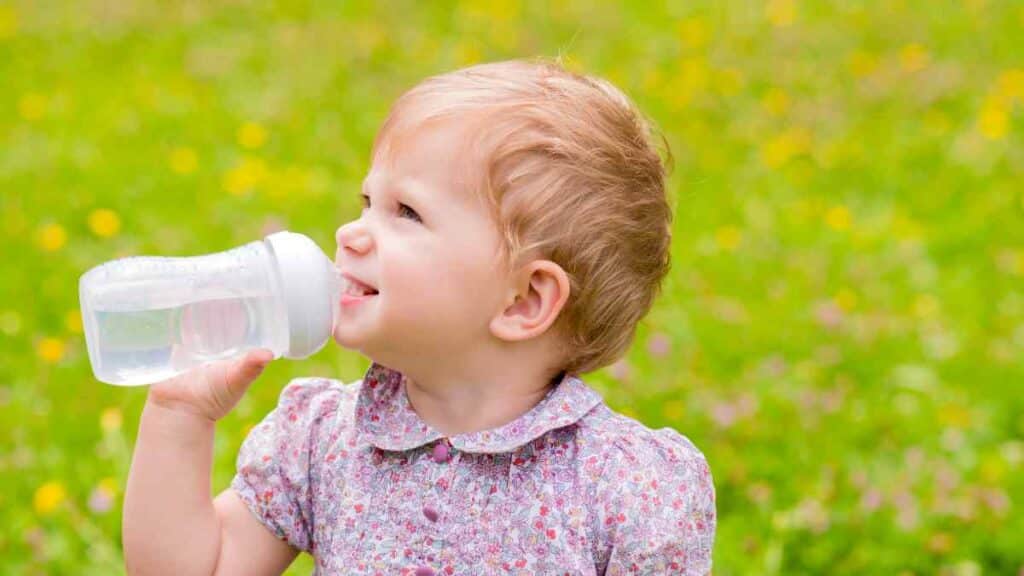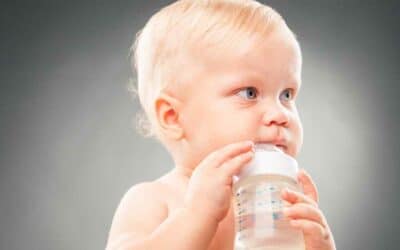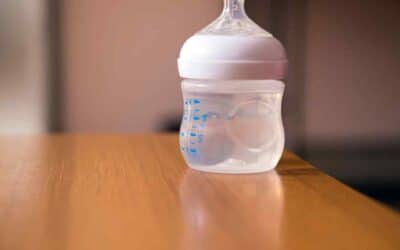As parents and caregivers, we constantly strive to provide the best care for our little ones, especially during those crucial early months of growth and development. One question that frequently arises is when and how to introduce water into an infant’s diet. At five months old, a baby is transitioning, exploring new tastes and textures, and developing rapidly. But can a 5-month-old have water? If so, how much, and under what circumstances? This seemingly simple question often leads to conflicting opinions, and sifting through the various guidelines can be daunting.
Understanding the exact needs of your baby is pivotal, as what might seem like a harmless sip of water could have unexpected consequences. This article aims to clarify this essential subject by exploring professional recommendations, weighing potential risks and benefits, and offering practical insights into the world of infant hydration. Whether you are a new parent seeking guidance or an experienced caregiver looking for a refresher, join us in delving into the guidelines that will help ensure the safe and appropriate introduction of water to a 5-month-old child.

Understanding The Infant’s Diet
Parenting involves many intricate decisions, especially when it comes to the nutrition of a young child. At the age of 5 months, babies are undergoing significant developmental changes, and their nutritional needs evolve accordingly. Understanding these needs can be complex, especially when terms like purified water, distilled water, and various guidelines come into play. Let’s explore these aspects to answer some crucial questions about babies’ hydration and nutrition.
Baby’s Nutritional Needs at 5 Months
At 5 months of age, an infant’s diet mainly consists of breast milk or formula, supplying all the nutrients needed for healthy growth. During this phase, many parents may ponder questions like “Can babies drink purified water?” or “Can babies have distilled water?” The answers to these questions can be found in the recommendations by the American Academy of Pediatrics and other peer-reviewed studies, which stress the importance of breast milk or formula as the primary sources of hydration.
Breast Milk or Formula: The Essential Hydration
Breast milk or formula contains all the hydration that young babies need. It regulates body temperature, keeps the baby hydrated, and provides all the nutrition required. Questions such as “Do babies need distilled water?” or “Can baby drink distilled water?” often arise. While babies under 6 months generally don’t require additional water, understanding the difference between purified vs distilled water for baby formula preparation may be essential.
- Purified Water for Babies: Purified water undergoes a filtration process to remove chemicals and contaminants but may still contain some minerals.
- Distilled Water for Babies: Distilled water is boiled into steam and condensed back into liquid, removing most minerals and contaminants. This process often makes it the best water for baby formula preparation, as advised by local health departments.
The debate over distilled or purified water for baby formula is usually centered around fluoride content. Nursery water vs distilled, baby water without fluoride, and fluoride-free water choices should be considered carefully. Consulting with healthcare providers or adhering to specific guidelines regarding water for baby formula can ensure the correct choice for your child.
Introduction to Solid Foods and Hydration Needs
At around 6 months of age, introducing solid foods becomes a part of the baby’s diet, influencing water drinking habits. Parents might wonder, “Is purified water the same as distilled water for introducing water to babies?” or consider using a sippy cup to encourage cup drinking skills.
When introducing solid food, small sips of water can complement the diet, but care must be taken not to provide too much water, leading to water intoxication or diluting formula. During hot weather, adequate hydration is vital, but breast milk or formula still remains the primary source, offering all the nutrients without the risk of electrolyte imbalances.

Understanding the Risks of Introducing Water Too Early
As new parents, the curiosity to introduce your baby to new experiences, including food and drink, is entirely natural. However, when it comes to introducing water to an infant’s diet, timing is crucial. While it may seem harmless to let babies drink water, especially in hot weather, introducing it too early carries significant risks. This column will explore the dangers of water intoxication, the potential impact on nutrient absorption from breast milk or formula, and the risk of replacing vital nutrition with empty calories.
Water Intoxication and Its Symptoms
Water intoxication is a severe concern for young babies. It occurs when excess water dilutes the body’s electrolytes, leading to a potentially dangerous imbalance. Key symptoms include wet diapers more often than usual, swelling, irritability, and in severe cases, seizures, or even coma. It might arise from questions like “How much water can babies drink?” or well-intended practices like mixing formula with too much water.
The American Academy of Pediatrics stresses that babies under 6 months should primarily rely on breast milk or infant formula for hydration. In areas like Orange County, where hot days might prompt additional water intake, care must be taken not to consume water excessively.
Potential Impact on Nutrient Absorption
Breast milk and formula are specifically designed to provide all the nutrients a young baby needs. They contain the perfect balance of vitamins, minerals, fats, and proteins. Introducing water too early may lead to:
– Less Breast Milk or Formula Consumption: Offering water in a bottle or sippy cup might satisfy the baby’s hunger, leading to less breast milk or formula consumption.
– Reduced Nutrient Absorption: Drinking water before the baby is ready may interfere with the body’s ability to absorb essential nutrients from breast milk or formula.
Local health departments often provide guidelines on when and how to introduce water, helping to avoid the pitfalls of giving your baby water too soon.
Replacing Vital Nutrition with Empty Calories
Water is vital for health, but for babies under 6 months, it offers no nutritional value. When babies drink water instead of breast milk or formula, they miss out on essential calories and nutrients. In essence, water becomes empty calories that can lead to malnourishment.
For parents eager to start drinking water habits, using tools like a straw cup may be appealing, but timing is key. Recommendations from health experts focus on ensuring that water does not replace recommended drinks like breast milk or specific infant formula feeds.

Safe Introduction of Water
Water is a fundamental part of our diet, essential for hydration and overall health. For young babies, though, the introduction of water should be approached with care and understanding. While baby water is eventually necessary, the timing, amount, and method of introduction can vary significantly. This column explores when it might be appropriate to introduce water, how much is acceptable, and offers tips for doing so safely, considering different climates and the baby’s specific needs.
When It Might Be Appropriate to Introduce Water
According to health experts, babies primarily rely on breast milk or formula for hydration for the first 6 months of life. After this period, as solid foods are introduced, small amounts of water can complement their diet.
- Introducing Water with Solid Foods: Around 6 months, as babies start to explore other foods, introducing water can aid in digestion and promote healthy hydration habits.
- Consulting Local Health Department Guidelines: Different regions may have specific recommendations, so consulting local health department guidelines can provide tailored advice.
How Much Water is Acceptable
For babies around 6 months starting to drink water, moderation is key.
- Start with Small Amounts: Offering a few sips during mealtime can be a gentle introduction, with gradual increases as the baby grows and consumes more solid food.
- Monitor Wet Diapers and Other Signs: Keep an eye on wet diapers, dry mouth, and sunken eyes as indicators of hydration levels.
Tips for Introducing Water Safely
Introducing water safely involves a combination of timing, method, and observation.
- Choose the Right Tools: Specialized sippy cups or straw cups designed for young babies can help ease the transition.
- Use Safe Water Sources: Tap water may need to be boiled, especially in certain areas. Local guidelines often provide instructions for safe preparation.
- Observe Baby’s Reaction: Watching how the baby reacts, how much water they consume, and any changes in their habits can guide adjustments in water intake.
Considerations for Different Climates and Baby’s Specific Needs
- Hot Climates: In hot days or warmer regions, staying hydrated is vital, but even then, water should be introduced thoughtfully for babies under 6 months.
- Special Dietary Needs: Babies with specific dietary requirements or health conditions may have different hydration needs. Consulting healthcare providers is essential in these cases.
Conclusion
Navigating the nutritional needs of a young child is a complex and highly nuanced task that requires careful consideration and understanding of various guidelines and recommendations. The question, “Can 5-month-old have water?” brings with it numerous factors to consider.
For the first 6 months of life, infants should ideally rely on breast milk or formula as their primary sources of hydration and nutrition. While the urge to introduce water, especially in hot weather, may be strong, it’s essential to recognize the potential risks involved in doing so too early. Water intoxication, nutrient disruption, and unintentionally substituting essential nourishment with empty calories are all valid concerns.
In a world brimming with information and varying opinions, sticking to evidence-based practices, following expert guidelines, and understanding the specific needs of your child offers the safest path towards a healthy and happy infancy. Whether boiling tap water, mixing formula, or exploring the differences between purified and distilled water, every decision contributes to your child’s well-being, making an informed approach all the more crucial.
Did this article help you? If so, we’d love to hear your thoughts. If you have any questions, don’t hesitate to ask!



